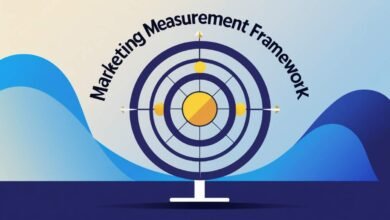5th Generation of Computer Technology: Leap Towards
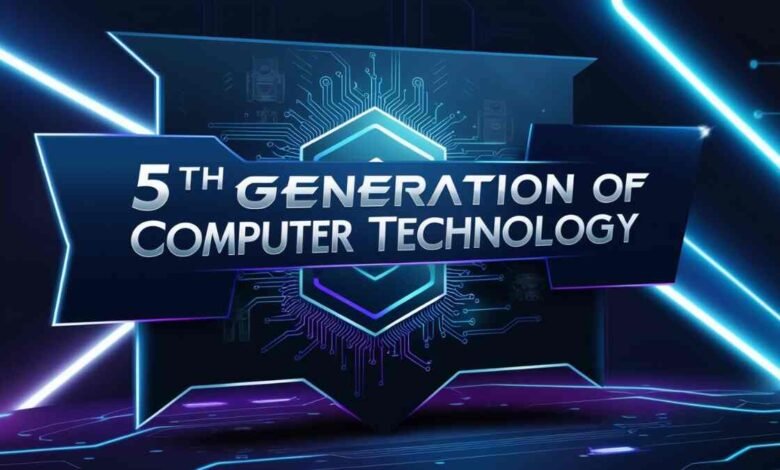
5th Generation of computer technology is a quantum leap towards intelligent computing. As a combination of AI and advanced processing, fifth-generation computers will change the way humans interact with machines, how real-time data is handled, and problem solving across industries.
1. Key Features of Fifth-Generation Computers
Artificial intelligence integration
Fifth-generation computers use AI to perform complicated tasks, simulate human thinking, and adapt to changing data. This characteristic enables systems to make predictions, take decisions, and learn, making them critical in modern industries.
Real-Time Decision-Making
The computers are capable of performing real-time analysis as they can deal with large volumes of data instantaneously. This ability can be applied to applications such as healthcare, self-driving cars, and cybersecurity, in which timely decisions determine success.
Advancements in NLP
NLP connects humans to machine communication in an unprecedented manner. Because NLP is able to understand and interpret human language, users can execute instructions intuitively, using voice commands or conversational AI. Thereby promoting greater accessibility and user experience.
2. Supercomputing and Parallel Processing
Processing Power Beyond Compare: 5th Generation of Computer Technology
Computationally, fifth-generation supercomputers process calculations at incredible speeds. This powerful processing capability enables simulations in key scientific fields, weather forecasts, and financial modeling that require exacting precision and maximum efficiency.
Energy Efficiency in Supercomputing
Supercomputers are designed to deliver high performance with minimal energy consumption. This makes them more sustainable, hence suitable for eco-technology-friendly industries.
Parallel Processing Capabilities
Multitasking gets enhanced in parallel processing by splitting complex computations into smaller tasks and then processing all of them simultaneously. This enhances efficiency and is critical in big data analyses, scientific research, and AI-driven applications.
3. Human-Computer Interaction
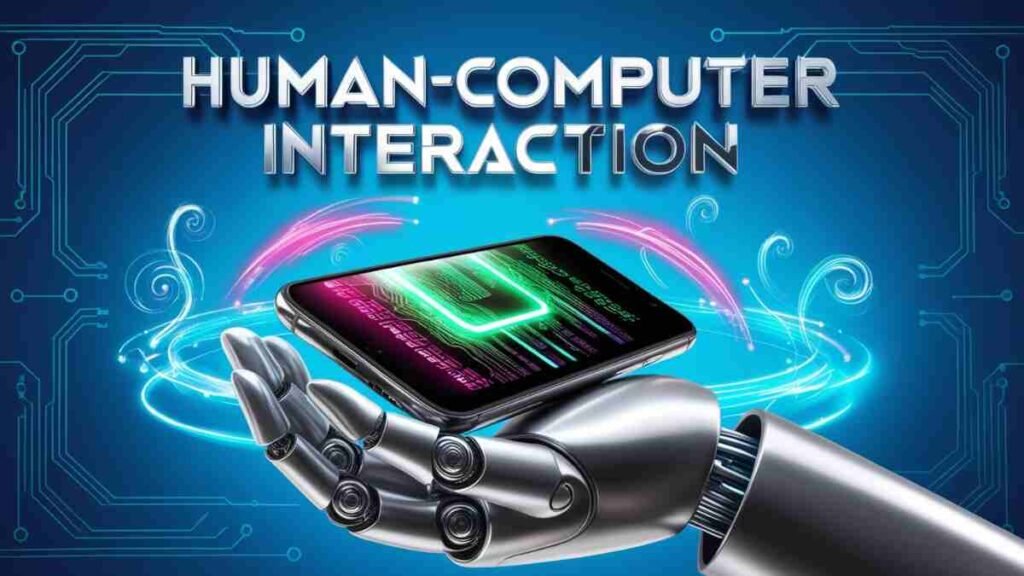
Natural User Interfaces
The focus of fifth-generation computers is intuitive interfaces; this includes voice recognition, gesture control, and touch interactions. These technologies make technology more accessible. Users can command the machines naturally and effortlessly, given that the computers are considering such developments.
Voice Recognition Advancements
Voice recognition systems can actually interpret spoken commands correctly. This technology is applied to the virtual assistants, smart devices, and accessibility tools, ensuring life becomes less complicated.
Gesture-Based Controls: 5th Generation of Computer Technology
Gesture-controlled interfaces can be seamlessly used as an interface to devices. Such systems support easy and inclusive access and usability, especially in gaming, virtual reality applications, and assistive technologies for the differently abled.
4. Applications of Knowledge-Based Systems
Revolutionizing Healthcare
In the healthcare sector, knowledge-based systems use medical data to provide diagnoses and treatments. The integration of AI has improved health care in terms of patient care and also streamlined the clinical decision-making process.
Impact on Financial Services
Knowledge-based systems enhance financial analysis by analyzing trends and predicting market movements. This capability is highly invaluable for making investment strategies, managing risk, and setting up financial planning in the dynamic current economic climate.
5. Emerge Trends in the Fifth Generation of Computing
Artificial Intelligence in Autonomous Systems
Artificial intelligence enhances autonomous systems such as self-driving cars. By processing real-time data, these machines ensure safety, efficiency, and adaptability, transforming transportation and logistics industries.
Contributions of Quantum Computing
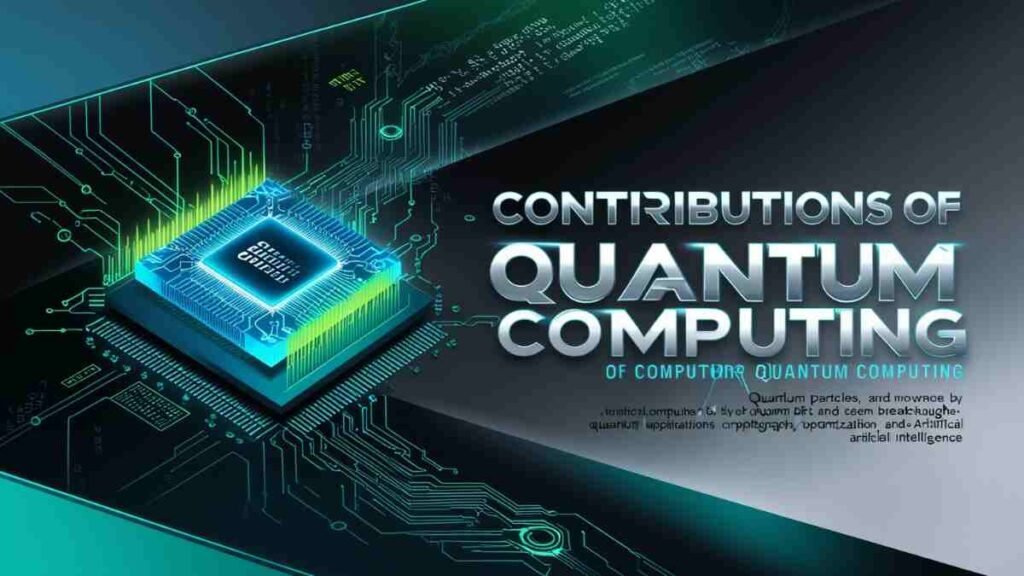
Quantum computing introduces unparalleled computational capabilities. By solving problems beyond traditional computing’s scope, it aids in cryptography, optimization, and scientific research, enhancing fifth-generation systems’ potential.
6. Future Implications of Fifth-Generation Technology
Transforming Education with AI
AI-powered fifth-generation computers are reshaping education by offering personalized learning experiences. These systems analyze students’ performance and adapt teaching methods accordingly, making education more effective and accessible to diverse learners.
Enhancing Cybersecurity
Fifth-generation systems use AI to identify and counter threats in real-time, thereby being proactive in cybersecurity. These systems can closely monitor patterns and detect anomalies, thus providing much-needed advanced cyberattack protection for sensitive information and infrastructure.
Smarter Smart Homes
Integration of AI with fifth-generation computing has transformed the smart home concept. These computers thus offer more comfort and energy efficiency, from automating lighting and climate control to intelligent security systems that simply adapt to user preferences.
7. The Role of AI in Everyday Applications
Virtual Assistants and Chatbots
AI-driven virtual assistants, such as Alexa and Siri, rely on natural language processing. These systems set reminders, answer queries, and remotely control smart devices, making everyday tasks easier to execute.
Increased Access Technology
The technology provided by fifth-generation technology has greatly enhanced accessibility tools. Voice recognition, eye-tracking, and gesture-based systems make it easier for people with disabilities to interact with technology, hence increasing their independence and accessibility.
AI in Predictive Maintenance
Applications of AI in predictive maintenance are revolutionizing industries. These systems predict possible failures based on data analysis from the machinery, allowing for timely repair and reduced downtime in manufacturing and other sectors.
Implementation of the Fifth Generation
The development expense
The development of fifth-generation systems is quite expensive because of the complexity involved in AI and the sophisticated hardware. This challenge limits access to such technologies by small enterprises or developing regions.
Data Privacy Issues
Since fifth-generation computers make extensive data processing, it is now important to handle user privacy. Governments and organizations need to have strict data protection legislation to reduce the chances of risking user privacy.
Ethical Dimensions in AI
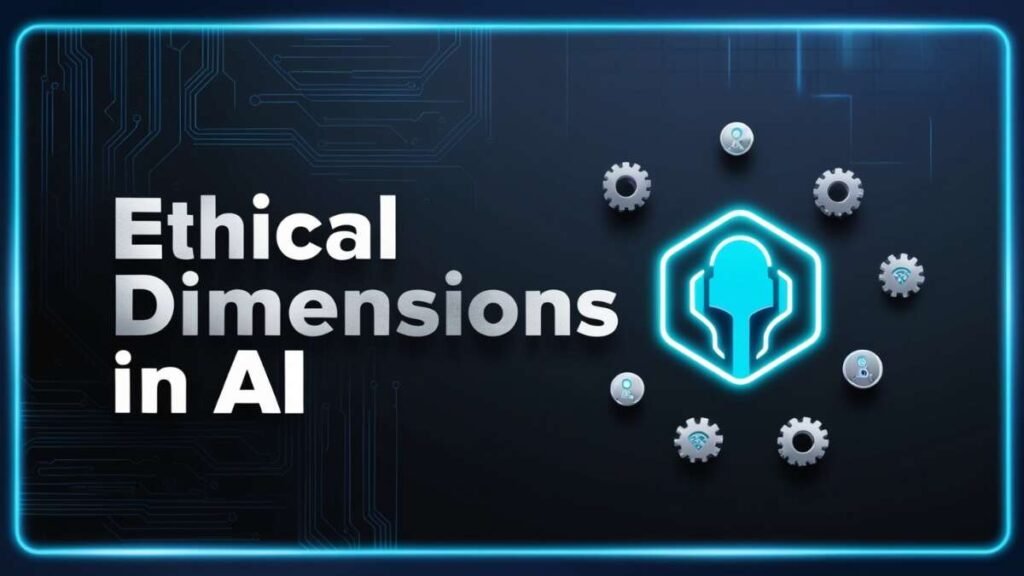
The role of AI raises ethical issues like discrimination in taking decisions and intentional misuse of intelligent systems. These issues, therefore, require strict regulations and an open algorithm.
8. Conclusion
The fifth generation of computer technology is a game-changer as it brings AI and advanced computing into the vanguard of innovation. From personalized education to smarter homes and groundbreaking health care, this generation promises to redefine the way humans respond to the machines around them. By confronting the challenge and embracing its potential, society finds itself on the threshold of a great technological revolution that will shape the future.
9. FAQs
1. What distinguishes fifth-generation computers from the previous generations?
The hallmark for fifth-generation computers is artificial intelligence, natural language processing, and real-time decision-making, enabling them to be smarter and more intuitive than earlier generations, which focused primarily on speed and then on size.
2. How do the users benefit by having natural language processing?
Natural language processing enables computers to understand and respond to human language. Communication is much smoother. Examples are applications involving virtual assistants, customer service chatbots, and accessibility tools.
3. Role of AI in fifth-generation healthcare systems
Health data analysis and diagnosis by AI-powered fifth-generation computers, providing treatment suggestions and ensuring effective and error-free patient care.
4. Can quantum computing be combined with fifth-generation technology?
Quantum computing enhances capabilities in solving optimization and cryptography problems, which benefits all industries, including fifth-generation technology.
5. What are the industries that are most benefited through the application of fifth-generation technology?
Fifth-generation technology encompasses AI integration, supercomputing power, and innovative applications that benefit industries like healthcare, finance, education, cybersecurity, and transportation.omplex problems exponentially faster, particularly in fields like cryptography and drug discovery.


